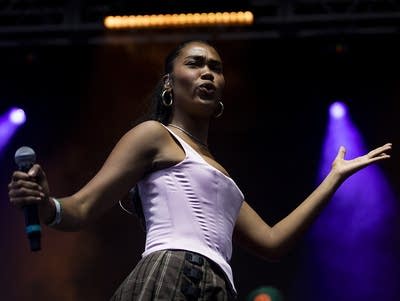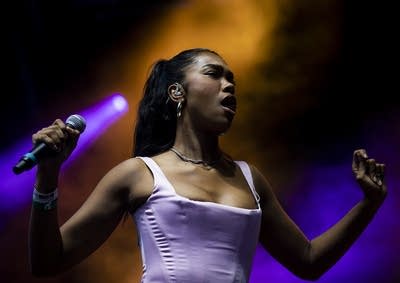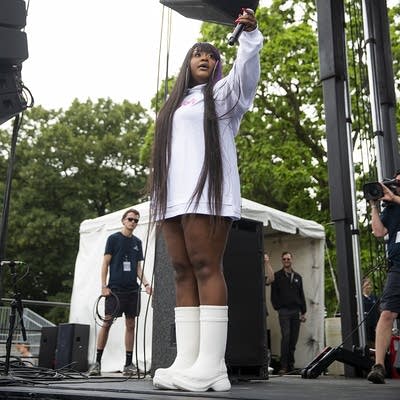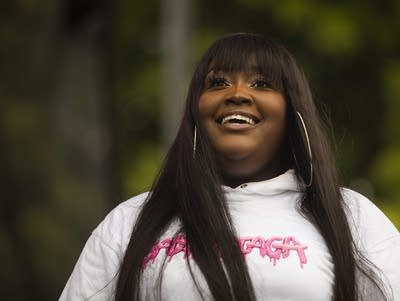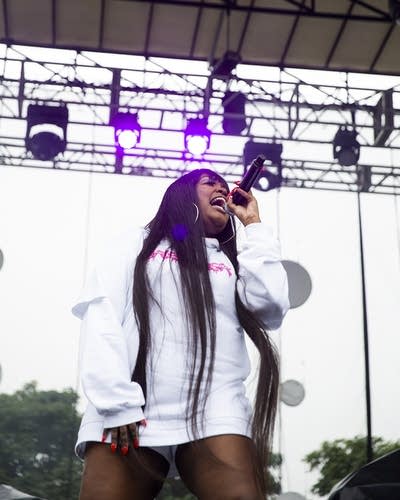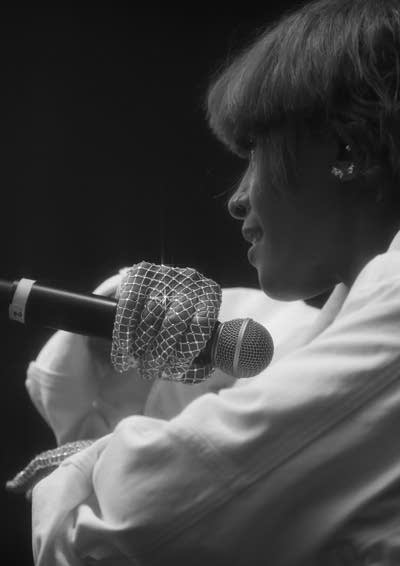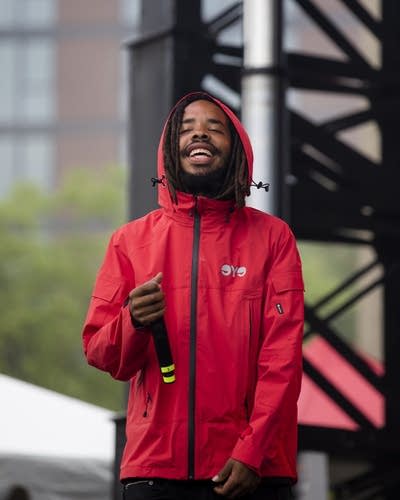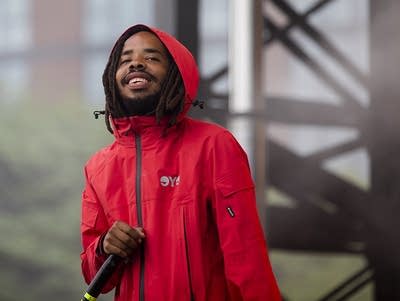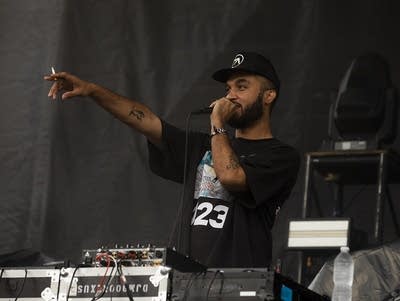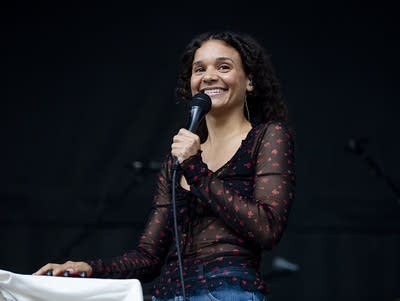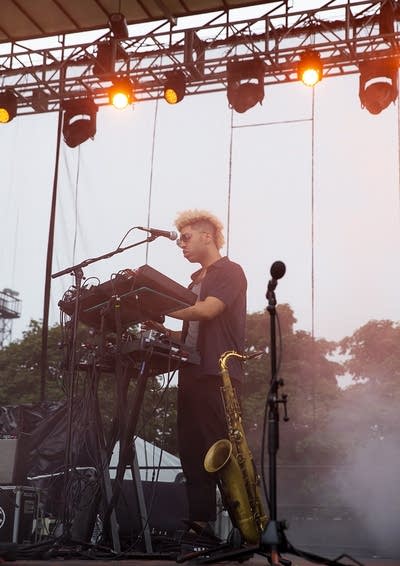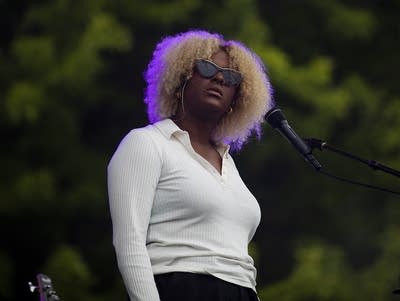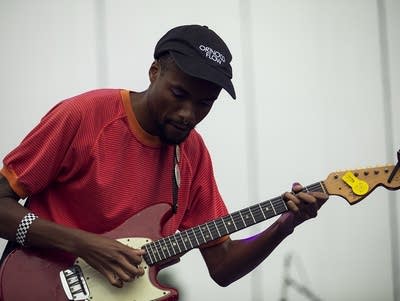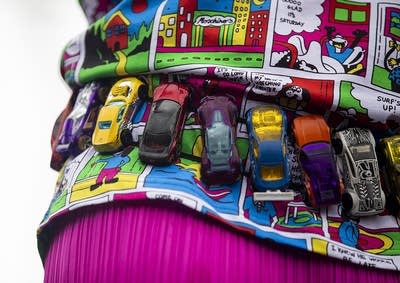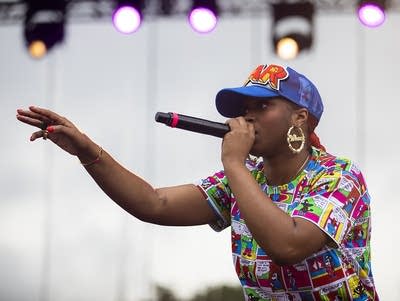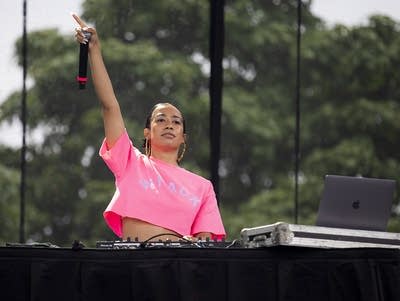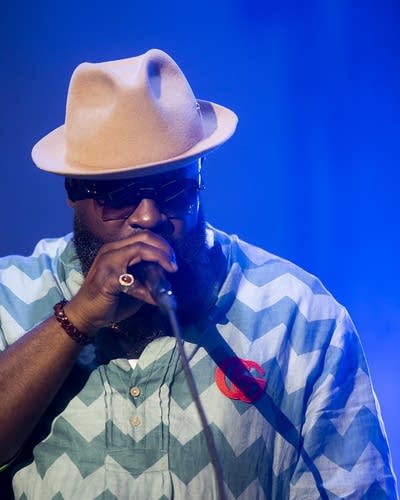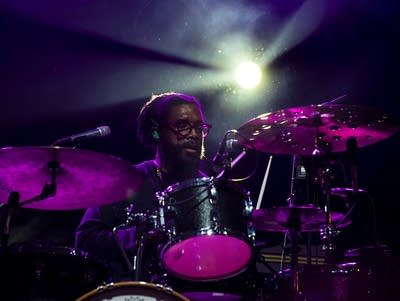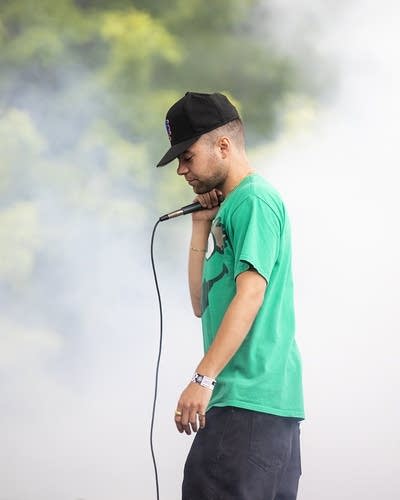Pitchfork Music Festival 2022: Nine top performances
by Kaj Johnson and Morgan Winston
July 20, 2022
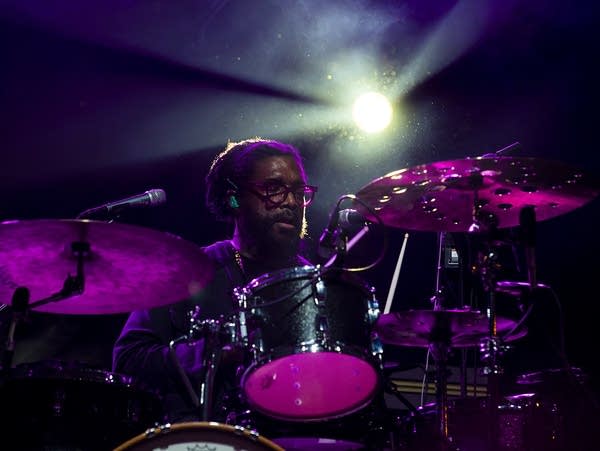
Thousands of people flocked to Union Park in Chicago on the weekend of July 15 to attend the 2022 Pitchfork Music Festival. The festival’s 17th iteration included Mitski, the Roots, and the National serving as headliners. Scores of other musicians, from local Chicago acts to big-time solo artists, joined them in the wind and rain, performing music ranging from pop and indie rock to neo-soul and experimental hip-hop.
During a weekend filled with acclaimed artists, here are nine acts that stood out from the rest:
Amber Mark
Nearing the end of the night on Day 2, Amber Mark delivered a vocally stunning set and a serious HIIT workout from her running and jumping around. Starting off her set with a cover of Sisqó’s “Thong Song” that fit her voice surprisingly well, Mark moved into her own material with coverage of her debut album Three Dimensions Deep. Her powerful alto was preserved beautifully live; without the band jamming behind her, I doubt she would even need a microphone to be heard. Mark made a quip about a failed relationship that inspired “What It Is,” a single off the album, but the song’s nearly six-minute duration defied any relatable one-liner; it was as pleading, orchestral, and evolving in the flesh as it was recorded.
cupcakKe
The English language has not evolved in time to describe the raunchiness of cupcakKe’s set. Sporting a Balenciaga hoodie with matching white stilettos, the Chicago rapper known for singles named “Deepthroat” and “Vagina” delivered an X-rated performance of her discography. She summed up the reasoning for her sex-filled raps succintly and with a smile: “female empowerment,” she announced as the crowd erupted in cheers. cupcakKe’s comedic acuity and fast-rapping abilities were just as strong live as they were in the studio. I spent the entirety of her performance simultaneously awe-struck at her rapping and dying of laughter.
Hannah Kadin, a college senior from Chicago, felt particularly excited for cupcakKe because of the hometown connection. “It’s so cool to see people from Chicago make it really big like cupcakKe,” she said. “I think it’s great when festivals try to bring in local artists, especially because festivals are something that definitely impact the community in which they take part. They have to shut down Union Park days, weeks in advance. So trying to make these sorts of ties with local artists I think is very important.”
Dawn Richard
In the midst of an active downpour that could have lowered crowd morale, Dawn Richard brought the heat with her energetic vocal performance and an impressive amount of choreography — all while rocking a 70-plus-inch ginger wig that could’ve been a serious tripping hazard. Backed by dancers with matching red hair and futuristic white fits, Richard performed a wide range of songs. From the disco-infused “Bussifame” to a trance-y rendition of “The Potter,” she jumped between singing, shouting, rapping, and serving vocal runs amidst a blissfully auto-tuned soundscape. As a listener who knew one or two of her bigger songs, but mostly relegated her to Diddy-Dirty Money fame, I quickly came to understand her as a formidable triple-threat with an impressive, genre-bending solo discography.
Earl Sweatshirt
Earl came to Pitchfork swinging. Two songs in and dismayed at the lack of audience participation, he quipped to his DJ Black Noi$e that “no one here knows these songs.” Making jokes about the growing mud pit in the middle of the field and his inability to stir up a crowd, Earl seemed comfortable doing his own thing, focusing largely on newer songs from his solo albums and collaborations with Black Noi$e. His nonchalant rapping style translated well to the stage, though the evening timing of his set made me long for a higher-energy performance that would reinvigorate the crowd. Still, his personality made him fun to watch, even if the love didn’t seem reciprocated.
Erika de Casier
The up-and-coming R&B star from Copenhagen delivered a set that, in spite of her slow- to mid-tempo discography, was engaging from start to finish. Supported by a live band that delivered a jazzy, Sade-evoking instrumental, Casier gave a vocal performance that could’ve easily come from an industry veteran. Fan favorites like “Little Bit” were accompanied by newer tracks off Casier’s second album, Sensational, that felt connected by their throwback instrumentals and Casier’s to-the-point writing style. In a time when ‘90s R&B is constantly “in,” Casier’s well-studied homage to the past stands out from the rest. Her performance at Pitchfork marked her U.S. festival debut, but the brightness and ease she exhibited while performing convinced me of her ability to pull a crowd in.
L’Rain
Despite having an early set time, L’Rain had no shortage of energy for jamming, whooping, and outright screaming the crowd into alertness. The multi-instrumentalist from Brooklyn displayed a wide range of vocal chops for her songs, which draw on her background in performance studies and performance history at Yale. Her backing band was similarly versatile, drifting into the background during some of L’Rain’s melodies while descending into psychedelic madness amidst her vocal outbursts. Her experience with experimental soundscapes and looper pedals gave the performance a layered, complicated quality that sounded more orchestral than I’d expect from a mere six performers.
Tierra Whack
Tierra Whack is made for the stage. The Philadelphia rapper came on with braided red hair and a desire to make the crowd go wild. It worked to her favor. From going in the middle of the crowd to inviting a dedicated fan on stage for a duet, she was successful in bringing an already-excited crowd to life. For an artist whose most popular songs last only a minute in length, she also knew how to fill time while keeping the performance engaging. Highlights such as “Only Child” and “Hungry Hippo” could barely be heard amidst the thousands of people singing along. It was a phenomenal performance that couldn’t be stopped by any amount of rain and wind thrown in the mix.
The Roots
The Roots brought a groovy, highly anticipated close to the weekend. By far the best-attended act, they weren’t afraid to draw from their own discography as well as perform an odd selection of covers, The Sound of Music’s “My Favorite Things” included. The wide range of ages in the crowd made The Roots stand out. Here were people with decades of age difference jamming to the same songs. A featured performance by the comedian and musician Hannibal Buress was welcomed but entirely unneeded. The Roots had the crowd enthralled from the get-go.
Wiki
Pulling up with a joint and a T-shirt bearing Oscar the Grouch, New York-based rapper Wiki brought an animated, energetic set to Day 1 of the festival. He jumped about the stage with excitement and was quick to make funny quips in a quintessential New York accent. He was as good at delivering braggadocious bravado as he was pointed cultural critique. In “The Business,” Wiki bemoans New York City transplants who gentrify the city where he grew up, rapping “Most of these out-of-towners don't know how to mind their own business / Put out every single mom and pop business.” These lines felt particularly poignant at a music festival overwhelmingly attended by the poster children of gentrification: white millennials.
Final thoughts: Performance Chops, Sound Issues, and TikTok’s Wrath
A recurring theme throughout the festival was hearing songs that went viral on TikTok in lieu of fan favorites that, while moderately popular, didn’t blow up in the same way. I felt this most strongly with cupcakKe, whose explicit songs have inspired countless remixes and mashups on the app. This trend directly amounted to “CPR” becoming one of her biggest hits. While all of these TikTok-adjacent songs were included on her setlist, fan favorites like “Lgbt” and “Crayons,” which have not inspire viral trends, were excluded. It was disappointing to see how social media trends can give artists an obligation, be it contractual or subconscious, to perform certain songs in lieu of others. Just as choosing to invite certain performers to a music festival is a political act, choosing songs that have passed the test of “virality” has political and cultural implications for the kind of music that is made, consumed, and re-made. Even the alternative, critically minded ethos of Pitchfork can’t evade the omnipresent impact of TikTok trends and hashtagged dance challenges.
The high caliber of the musical acts was thwarted at times by sound issues. There were consistent issues of songs cutting out midway through, mics being turned down or off haphazardly, and skips in the audio that provided a jarring listening experience. It didn’t happen in every set, but issues were frequent enough to make it a running joke of the weekend. One of cupcakKe’s songs had to be restarted, and the Singaporean musician Yeule had mic issues that caused their voice to be consistently lost in the fray. Coming from a festival as storied and high-regarded as Pitchfork, these technical difficulties were disappointing and brought the audience out of an otherwise enthralling weekend of music.
Still, my lasting impression of the weekend was just how good everyone sounded. This was my first live festival since the beginning of the COVID-19 pandemic, and I got the impression that many performers and fellow attendees were in a similar boat of re-acclimating to the excitement and chaos that a three-day musical festival entails. As such, the singing, rapping, and instrumentation sounded polished and fully realized; everyone seemed to be excited to be in Union Park and surrounded by fellow performers giving their A-game. Ritchie with a T of rap group Injury Reserve remarked that the weekend had “the best musicians in the world, only missing a few”, and after hearing the entirety of the festival’s three days, it was hard to disagree.

